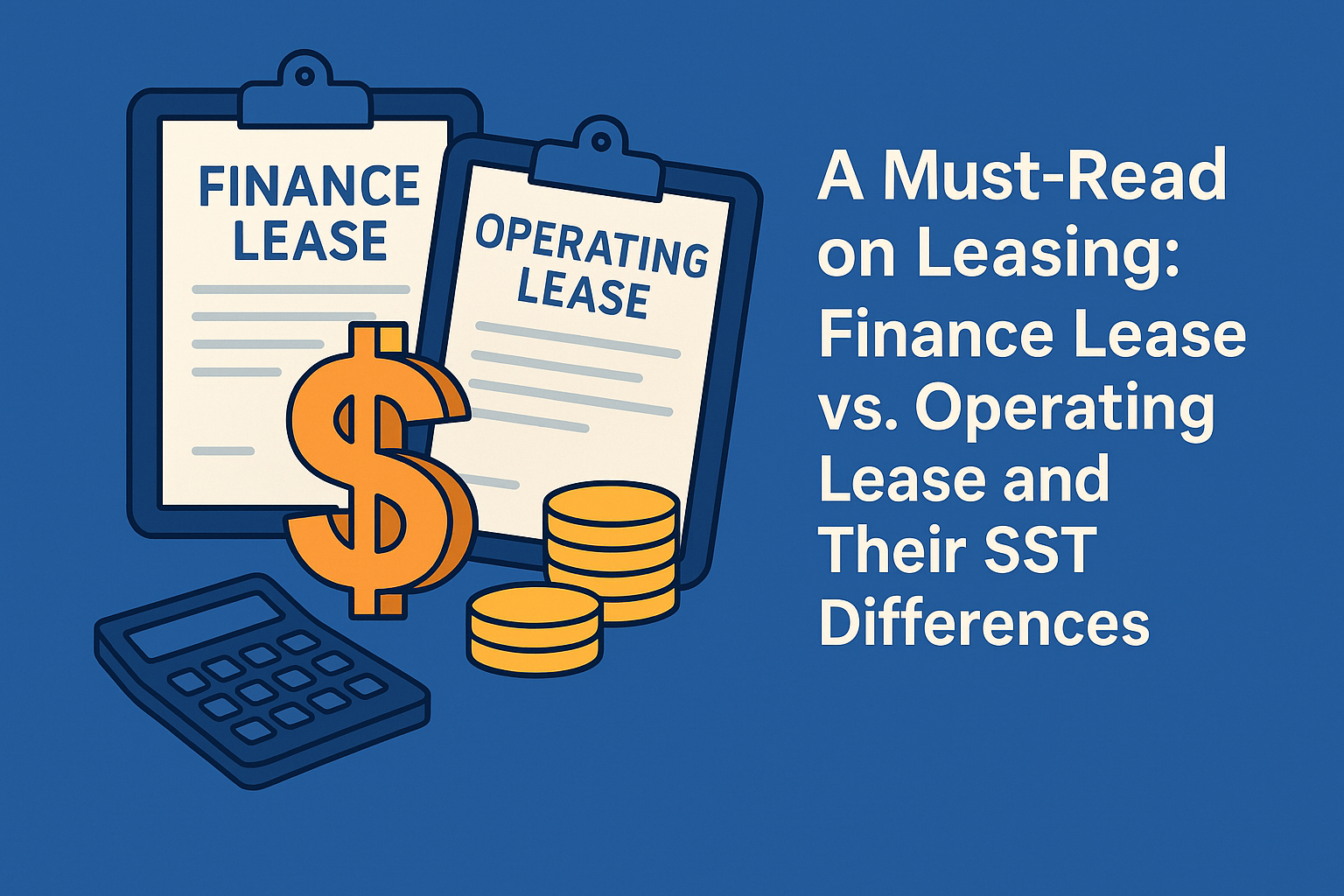In Malaysia, leasing is a common way for businesses to acquire equipment, vehicles, and commercial spaces. However, with the recent expansion of Service Tax (SST), a critical question has emerged for all business owners: Is your lease agreement subject to the 8% service tax?
The answer depends entirely on the type of lease you have. According to the latest guides from the Royal Malaysian Customs Department (RMCD), there is a world of difference between a Finance Lease and an Operating Lease in their tax treatment. Understanding this distinction is essential for managing costs and ensuring compliance.
The Two Main Types of Leases
To understand the critical tax differences, it’s important to first see how these two lease types differ in their fundamental structure and purpose.
A
Finance Lease is a long-term contract where the lessor allows the lessee to use an asset in exchange for payments over a long-term period. In contrast, an
Operating Lease is a contract where the lessor allows the lessee to use an asset in exchange for payments over a short-term period.
Let’s break down the key distinctions in more detail.
1. The Goal: Ownership vs. Temporary Use
The primary difference lies in the end goal of the contract. A
Finance Lease is structured for the lessee to eventually own the asset at the end of the lease period. It is essentially a form of financing for an asset purchase. An
Operating Lease, however, is a true rental agreement where the goal is only the temporary use of the asset, which is returned to the lessor when the lease ends.
2. Who Bears the Risk and Responsibility?
Responsibilities for the asset also differ significantly. In a
Finance Lease, both the asset ownership risk (like damage or obsolescence) and the responsibility for asset maintenance are transferred to you, the lessee. For an
Operating Lease, the lessor retains ownership and is therefore responsible for the asset’s risks and upkeep.
The Critical Tax Implication: Which Lease is Subject to SST?
Here is the most crucial distinction for your business finances, based on the official guidelines:
-
Operating Leases are considered a taxable service and are subject to an 8% Service Tax if the lessor is an SST-registered entity (i.e., their annual taxable turnover exceeds the threshold).
-
Finance Leases are not subject to service tax.
The reason for this difference is that a
Finance Lease is treated as a financial service rather than a rental service, because there is a transfer of ownership of the asset at the end of the rental period. An Operating Lease, with no transfer of ownership, is considered a pure provision of rental services and is therefore taxable.
What Does This Mean for Your Business?
- Review Your Lease Agreements: Carefully examine all your existing lease contracts—whether for your office, printer, or vehicles—to determine if they are legally classified as a finance lease or an operating lease.
- Communicate with Your Vendors/Lessors: If you are paying 8% SST on a leasing service, confirm with your lessor that they are a legitimate SST-registered entity and that the lease is correctly classified as an operating lease.
- Plan Future Asset Acquisitions: When acquiring new equipment or assets in the future, carefully consider whether to use a finance lease (no SST) or an operating lease (potential SST). This could have a direct impact on your costs.
How SMONE Can Help
Understanding and applying complex SST regulations can consume your valuable time. At SMONE, we help clients review contracts, assess tax implications, and communicate professionally with vendors, ensuring every transaction is both compliant and cost-effective.
If you have any questions about your lease agreements, contact us today for a professional consultation.
(Disclaimer)
This article is for general informational purposes. It does not constitute legal or tax advice. We recommend consulting with a qualified professional for advice tailored to your specific situation.


